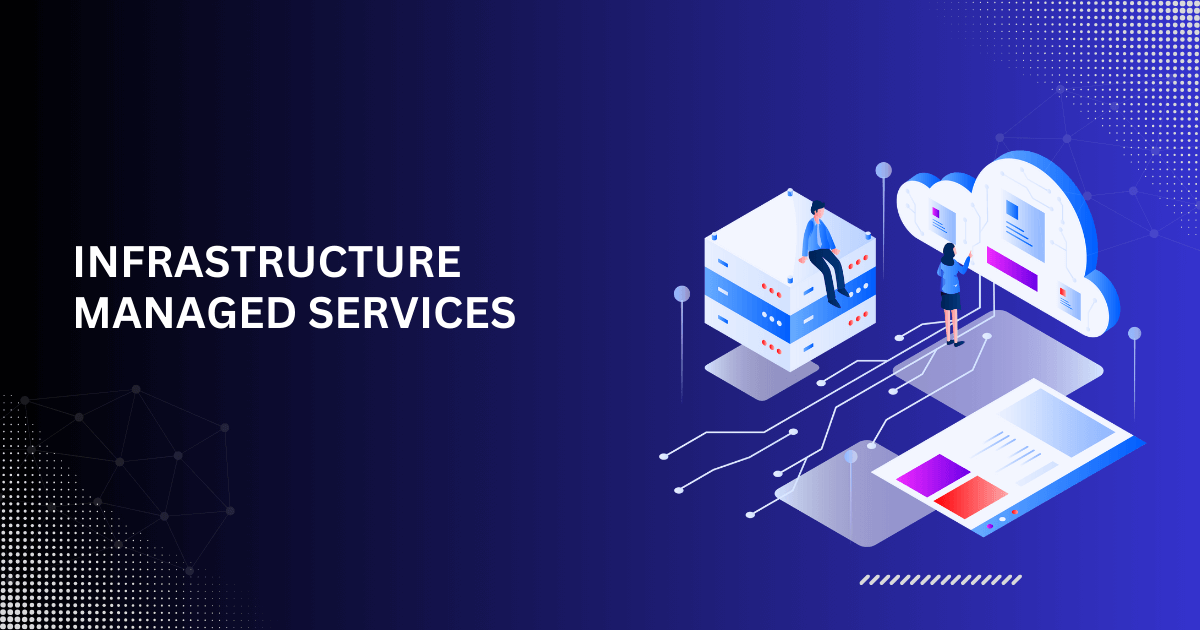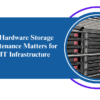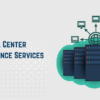Infrastructure Managed Services: Empowering Business Efficiency and Growth
Infrastructure Managed Services (IMS) have gained popularity among businesses seeking to manage, secure, and optimize their IT assets while focusing on core operations. In an increasingly digital world, Infrastructure Managed Services offers comprehensive support, covering everything from servers and networks to security, storage, and compliance. This guide will explore the critical components of IMS, its many benefits, and how it can transform your organization’s infrastructure to keep you competitive in today’s fast-paced market.
What is Infrastructure Managed Services?
At its core, IMS refers to the outsourcing of essential IT infrastructure management to a third-party provider, who then oversees and optimizes an organization’s IT environment. This service often includes managing hardware, software, networks, security protocols, and cloud-based resources. By utilizing IMS, businesses can delegate technical tasks to specialized teams, allowing them to focus on strategic goals without compromising their technological stability or performance.
Key Components of Infrastructure Managed Services
Infrastructure Managed Services encompasses various elements that together create a seamless IT experience:
- IT Infrastructure Management: This is the foundation of IMS, where managed service providers (MSPs) take on responsibilities like hardware maintenance, software upgrades, and network performance monitoring. A well-maintained IT infrastructure minimizes downtime, enhances productivity, and ensures your systems run smoothly at all times.
- Network and Connectivity Services: Stable and secure network connectivity is vital for operational efficiency. MSPs monitor network performance, optimize connectivity, and ensure that data flows smoothly across your organization’s network. They can also implement security measures like firewalls, VPNs, and real-time monitoring to protect against cyber threats.
- Data Storage and Backup Solutions: Data is a core asset for any business, making its protection a top priority. MSPs implement robust storage and backup solutions to ensure data integrity and disaster recovery readiness. Through automated backups, data encryption, and quick recovery options, IMS providers protect against data loss and help meet regulatory requirements for data handling.
- Security and Compliance Management: With the increasing frequency of cyberattacks, security is no longer optional. IMS providers offer comprehensive cybersecurity solutions, including threat detection, incident response, and compliance management to align with industry regulations. These measures ensure that sensitive information is safeguarded and that your organization can confidently operate within regulatory frameworks.
- Cloud Infrastructure Management: Cloud services have become essential for businesses looking for scalability and flexibility. IMS providers help manage cloud resources, from storage and application hosting to cloud security and usage optimization, ensuring that companies can make the most of cloud technology while keeping costs under control.
Benefits of Infrastructure Managed Services
IMS brings numerous advantages to businesses, enhancing operational efficiency and security.
Cost Efficiency and Predictable Budgeting
Investing in IMS converts unpredictable IT expenses into predictable monthly fees. By avoiding large upfront investments in hardware and software, businesses can allocate resources more effectively and maintain financial stability. Furthermore, IMS providers often bring bulk purchasing power, reducing costs on hardware, software, and licensing.
Enhanced Performance and Minimal Downtime
Managed infrastructure ensures that systems are continuously monitored and optimized, leading to reduced downtime and higher productivity. IMS providers deploy proactive maintenance, allowing businesses to avoid costly interruptions. In addition, managed service providers often have a 24/7 support model, which means technical issues can be resolved before they affect productivity.
Access to Expertise
Partnering with an Infrastructure Managed Services provider grants access to a team of specialists well-versed in the latest technology trends, security protocols, and best practices. These experts offer strategic guidance and support that can significantly improve your organization’s IT operations. They also bring deep experience from working across industries, which means they can recommend solutions based on proven success cases.
Scalability and Flexibility
IMS offers a flexible structure that can adjust as your business grows. Providers can increase or decrease resources to meet fluctuating demands, allowing you to scale without the need for additional internal IT staff. This elasticity ensures that your organization can adapt to changing market conditions and evolving operational requirements.
How Infrastructure Managed Services Improve Security
The digital landscape presents an array of security threats that can compromise data integrity, disrupt business, and damage reputation. IMS addresses these risks with robust security measures tailored to your organization’s needs.
Real-Time Cybersecurity Monitoring
Infrastructure Managed Services providers employ advanced monitoring tools to detect unusual activity, potential breaches, and unauthorized access attempts in real time. This proactive approach allows immediate intervention, reducing the risk of data theft or other security incidents.
Proactive Risk Management and Compliance
With IMS, businesses benefit from a proactive approach to risk management. MSPs regularly audit systems, implement updates, and maintain compliance with industry regulations. Whether your business is in healthcare, finance, or any other regulated field, IMS ensures adherence to strict guidelines, reducing the risk of non-compliance penalties.
Choosing the Right Infrastructure Managed Services Provider
Selecting the ideal IMS provider requires careful consideration of several factors, including expertise, reputation, and flexibility. At Agrius IT, we bring years of industry experience, a trusted reputation for reliability, and customized solutions tailored to your business’s unique infrastructure needs. With our client-focused approach, Agrius IT ensures seamless integration and ongoing support to keep your operations running smoothly, adapting as your business grows and evolves.
Key Qualities to Look For
- Technical Expertise: Choose a provider with a proven track record in your industry. Look for certifications, case studies, and testimonials that demonstrate their ability to manage complex infrastructures.
- Service Level Agreements (SLAs): An SLA outlines the level of service you can expect, such as uptime guarantees, response times, and resolution benchmarks. Select a provider that offers SLAs tailored to your business’s critical needs.
- Customizable Solutions: No two businesses are the same. Ensure that the IMS provider can offer customized services that align with your unique requirements and adjust as those needs change.
- Reliability and Support: Around-the-clock support is essential for minimizing downtime. Choose an IMS provider with a reliable support system that ensures quick responses to your technical concerns.
Embracing Automation with Infrastructure Managed Services
Automation plays a critical role in modern Infrastructure Managed Services by enhancing efficiency and reducing operational costs. Automated processes can take over repetitive tasks like software updates, system health checks, and incident detection, freeing up time for more strategic initiatives. With automation, IMS providers can deliver faster and more accurate service while minimizing human error, ensuring consistent performance.
Real-Time Data and Analytics
Automation also brings advanced data analytics capabilities. With real-time insights into system health, network performance, and security threats, businesses gain a comprehensive view of their IT environment. This data empowers companies to make well-informed decisions, optimize performance, and plan for future growth.
Future Trends in Infrastructure Managed Services
IMS continues to evolve, with emerging trends promising to shape its future. Artificial intelligence (AI) and machine learning (ML) are leading innovations in IMS, offering predictive maintenance, enhanced security, and resource optimization. By integrating AI and ML, IMS providers can detect patterns and anticipate potential issues before they become problematic, enhancing reliability and performance.
Additionally, with the growing demand for sustainability, IMS is incorporating eco-friendly practices, including energy-efficient data centers and virtualization. As companies strive for environmental responsibility, these green technologies will likely play a significant role in the future of IMS.
Implementing Infrastructure Managed Services in Your Business
The transition to Infrastructure Managed Services should be gradual and well-planned. Start by defining your organization’s needs and objectives. Outline the specific infrastructure components that need management and the desired outcomes, such as cost reduction, increased productivity, or improved security.
Once your goals are clear, choose an IMS provider that aligns with these objectives and implement a phased approach. Gradually transitioning allows for testing and feedback, ensuring a seamless integration without disrupting daily operations. Regular evaluations of the service will ensure that your IMS continues to meet evolving business needs.
Conclusion
Infrastructure Managed Services are more than just a technical solution—they’re a strategic investment that supports business growth, enhances security, and fosters innovation. By leveraging IMS, companies can maintain robust IT environments without the strain of in-house management, allowing them to focus on core business activities. Whether you’re a small business looking to streamline IT costs or an enterprise seeking scalable, flexible solutions, IMS can be tailored to fit your needs and propel your business into the future.
faq
IMS involves outsourcing IT infrastructure management to a third-party provider, who handles aspects like network, security, storage, and cloud resources, providing expert management and maintenance.
IMS converts capital expenditures to predictable monthly costs, eliminating large initial investments in IT infrastructure and allowing better budget management.
Yes, IMS is scalable, meaning small businesses can start with essential services and expand as needed. This flexibility allows them to enjoy expert management and security at a manageable cost.
Key factors include the provider’s expertise, the quality of their SLAs, customization options, and the level of support offered. Look for providers with a strong reputation and experience in your industry.
IMS provides flexibility to scale resources up or down, enabling businesses to adapt quickly to changing demands and supporting growth without the need for additional infrastructure investments.



